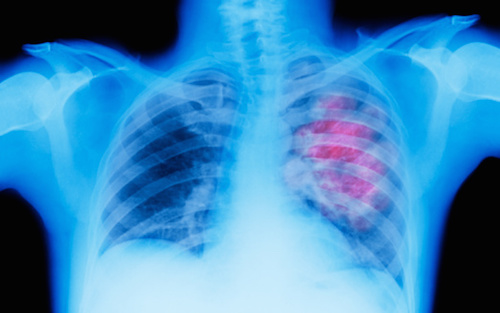
The KRAS-inhibitor race came into attention this week when non-small cell lung cancer patients with a KRAS G12C mutation had higher progression-free survival (PFS) and objective response rate (ORR) with Amgen’s KRAS inhibitor Lumakras (sotorasib) compared with docetaxel, according to results from a Phase III trial. The data were presented yesterday at the European Society for Medical Oncology (ESMO) Congress 2022 in Paris.
“The totality of evidence from this study supports Lumakras as an important targeted treatment option for patients with non-small cell lung cancer who harbor the KRAS G12C mutation, and reinforces the critical need for comprehensive biomarker testing for all patients with advanced disease,” said David M. Reese, MD, executive vice president of Research and Development at Amgen.
“We plan to submit this data to health authorities around the world where Lumakras/Lumykras is conditionally approved, and we look forward to our discussions with regulators,” he added.
The KRAS-inhibitor field is highly competitive. Almost 400 clinical trials involving KRAS mutations ongoing. One of the field’s leaders, Mirati Therapeutics, inked a deal with Sanofi in Fall 2021 to combine the small biotech’s KRAS G12C inhibitor with the big pharma’s SHP2 inhibitor, SAR442720, in a Phase I/II trial.
Lumakras, is expected to get full approval based on the most current data. On the downside, the drug showed no overall survival, and there were new signals of liver toxicity. However, it significantly improved PFS compared to docetaxel in heavily pre-treated patients. The proportion of patients with PFS at one year was 25% for Lumakras versus 10% for docetaxel.
The drug also demonstrated a significantly higher ORR than docetaxel with double the response rates in the Lumakras arm (28% versus 13%, respectively) and showed consistent benefit across other efficacy secondary endpoints, specifically improved disease control rate (83% versus 60%, respectively); faster time to response (1.4 versus 2.8 months, respectively); and longer duration of response (DOR; 8.6 versus 6.8 months, respectively).
“This is the first Phase III randomized clinical trial for a KRAS G12C inhibitor to show benefit in heavily pre-treated patients who have limited treatment options,” said Melissa L. Johnson, MD, director of Lung Cancer Research, Sarah Cannon Research Institute at Tennessee Oncology and presenting author.
It is encouraging that progression-free survival benefits were consistent across all clinically relevant subgroups including those with a history of brain metastases, and that sotorasib response rates were more than double compared to docetaxel response rates. This data represents a major advance for the treatment of patients with KRAS G12C-mutated non-small cell lung cancer.”
Lumakras is the only KRAS G12C inhibitor approved anywhere. In May 2021, the drug received accelerated approval in the U.S. It is also approved in the European Union, Japan, United Arab Emirates, South Korea, Hong Kong, Switzerland, Taiwan, Qatar, Australia, Brazil, Canada, Great Britain, Singapore, and Israel. The drug is also being studied in multiple other solid tumors.
KRAS G12C is the most common KRAS mutation in NSCLC. About 13% of patients with NSCLC harbor the KRAS G12C mutation. Unmet medical need remains high and treatment options are limited for NSCLC patients with the KRAS G12C mutation whose first-line treatment has failed to work or has stopped working. The outcomes with other approved therapies are suboptimal, with a median progression-free survival of approximately four months following second-line treatment of KRAS G12C-mutated non-small cell lung cancer.













